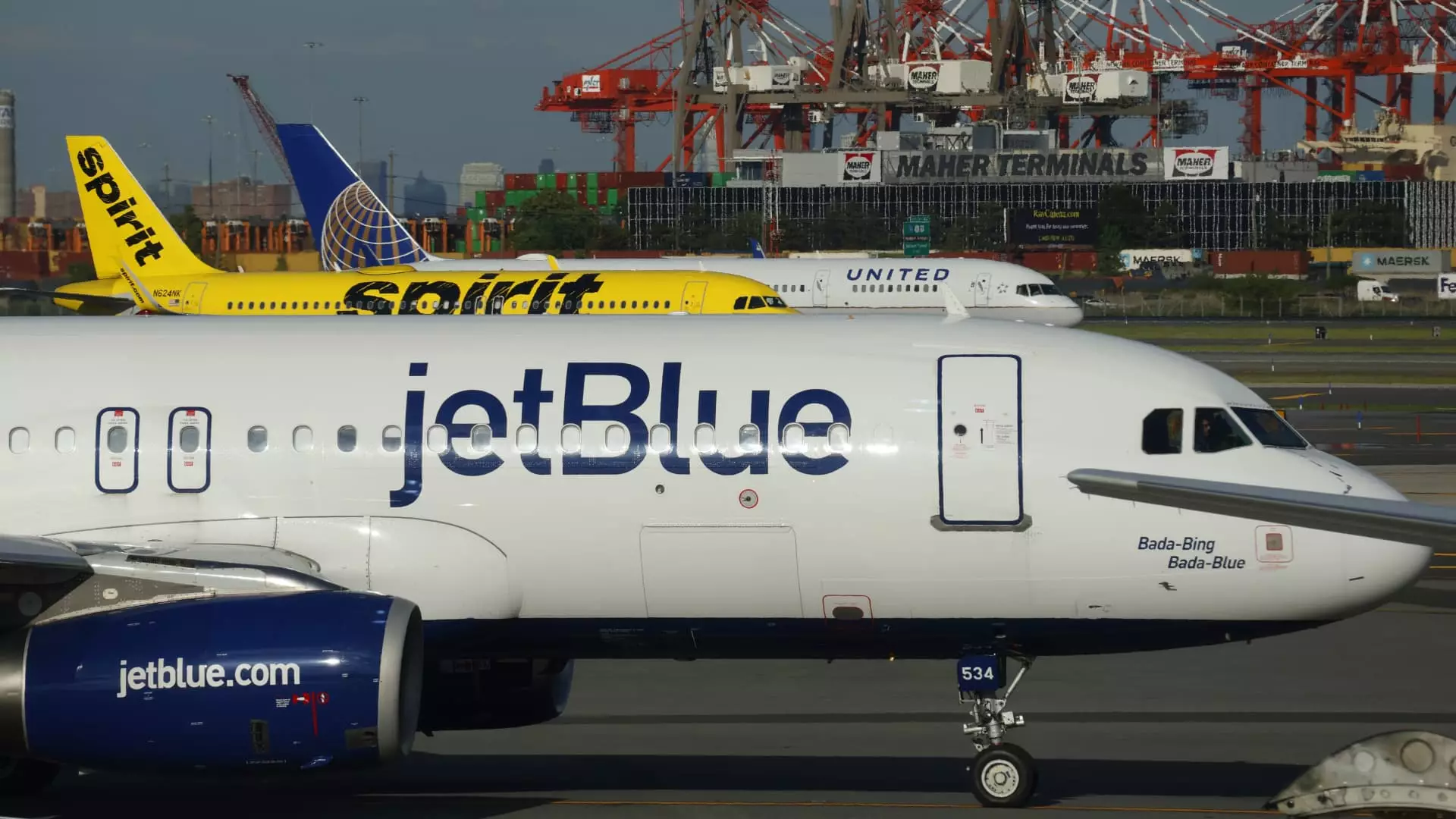Airlines, once eager to expand their fleets with new aircraft, are now facing financial constraints that are causing them to rethink their growth strategies. Cash-strapped low-cost and budget carriers, such as Spirit Airlines, JetBlue Airways, and Frontier Airlines, are postponing billions of dollars worth of new aircraft orders in an effort to save money and return to profitability. The impact of engine recalls, rising costs, and decreased revenue due to a flood of flights in the market have forced these airlines to reassess their plans for new aircraft acquisitions.
The decision to defer new aircraft deliveries is having a noticeable effect on ticket prices and revenue for airlines. Fare-tracker estimates show that the average fare for roundtrip U.S. domestic flights has decreased by 8% compared to last year. While this may benefit passengers in the short term, airlines are facing challenges in maintaining profitability with lower ticket prices and increased costs. Carriers like Frontier Airlines have reported a rise in revenue despite carrying more passengers, but with average fare revenue taking a hit of 16%.
Airlines like JetBlue Airways are implementing strategies to reduce costs and save money amidst the current financial challenges. By deferring aircraft deliveries and exiting unprofitable routes, JetBlue estimates it will save about $3 billion. The airline is also extending aircraft leases and taking steps to address the impact of grounded jets from engine recalls. The need to balance growth with financial stability is a priority for airlines facing uncertain market conditions.
Effects of Aircraft Deferrals
The decision to defer new aircraft deliveries is not without consequences for airlines. While it may provide short-term financial relief, airlines risk exacerbating the problem of overcapacity in the market. JetBlue CEO Joanna Geraghty highlighted the challenges of balancing the need for growth with the financial constraints of acquiring new aircraft. For airlines like Spirit Airlines, which reported deep losses and deferred all Airbus plane orders until at least 2030, the deferrals are a critical part of their turnaround strategy.
Industry Outlook and Challenges
Despite the deferrals from budget carriers, the global airline industry continues to face challenges in meeting demand for new fuel-efficient aircraft. Lease rates for popular models like the Airbus A320 and Boeing 737 Max remain high, indicating a scarcity of available planes. Suppliers like Airbus and Boeing are struggling to increase output due to skilled worker shortages and supply chain disruptions. While demand for new aircraft remains strong, airlines are being forced to carefully manage their fleet plans to navigate the uncertain market conditions.
The decision by airlines to defer new aircraft deliveries is a reflection of the financial pressures they are facing in the current market environment. While these deferrals offer temporary relief, they also present challenges in balancing growth with financial stability. Airlines must carefully consider their fleet plans and cost-saving strategies to weather the ongoing impact of engine recalls, rising costs, and fluctuating demand. The industry will need to adapt and innovate to overcome these challenges and ensure long-term sustainability.

